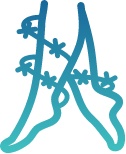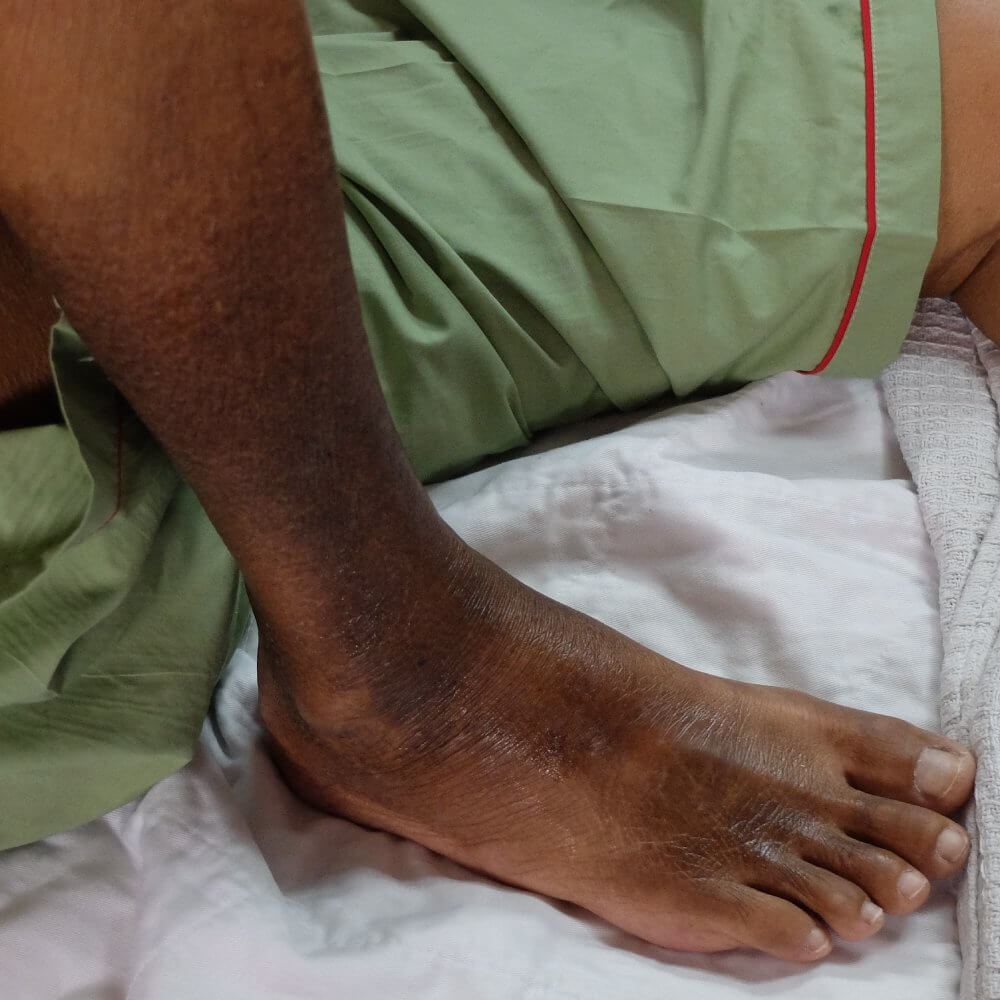
Venous Insufficiency
Venous insufficiency is a condition that occurs when the veins in your legs have difficulty carrying blood back to the heart. Healthy veins have one-way valves that help blood flow in the right direction, but when these valves weaken or become damaged, blood can pool in the legs and cause various symptoms and complications.
Symptoms of Venous Insufficiency
Venous insufficiency often presents with a variety of symptoms, primarily affecting the legs and lower extremities. The severity and specific symptoms can vary from person to person. Common symptoms of venous insufficiency include:
Causes of Venous Insufficiency
The primary cause of venous insufficiency is the weakening or damaging of the valves in the veins, disrupting the flow of blood back to the heart. Common causes include:
Hormonal changes and increased pressure on the pelvis can affect vein function during pregnancy.
Risk Factors for Venous Insufficiency
Several risk factors increase the likelihood of developing venous insufficiency:
The risk of developing venous insufficiency increases as you age.
Women are more susceptible to venous insufficiency than men, especially during and after pregnancy.
If other family members have had vein-related issues, you may be more prone to venous insufficiency.
Excess weight can strain the veins and increase the risk of valve damage.
Jobs that involve long periods of sitting or standing can elevate your risk of venous insufficiency.
Treatment for Venous Insufficiency
Several treatment options for venous insufficiency can help alleviate symptoms and improve circulation in the veins.
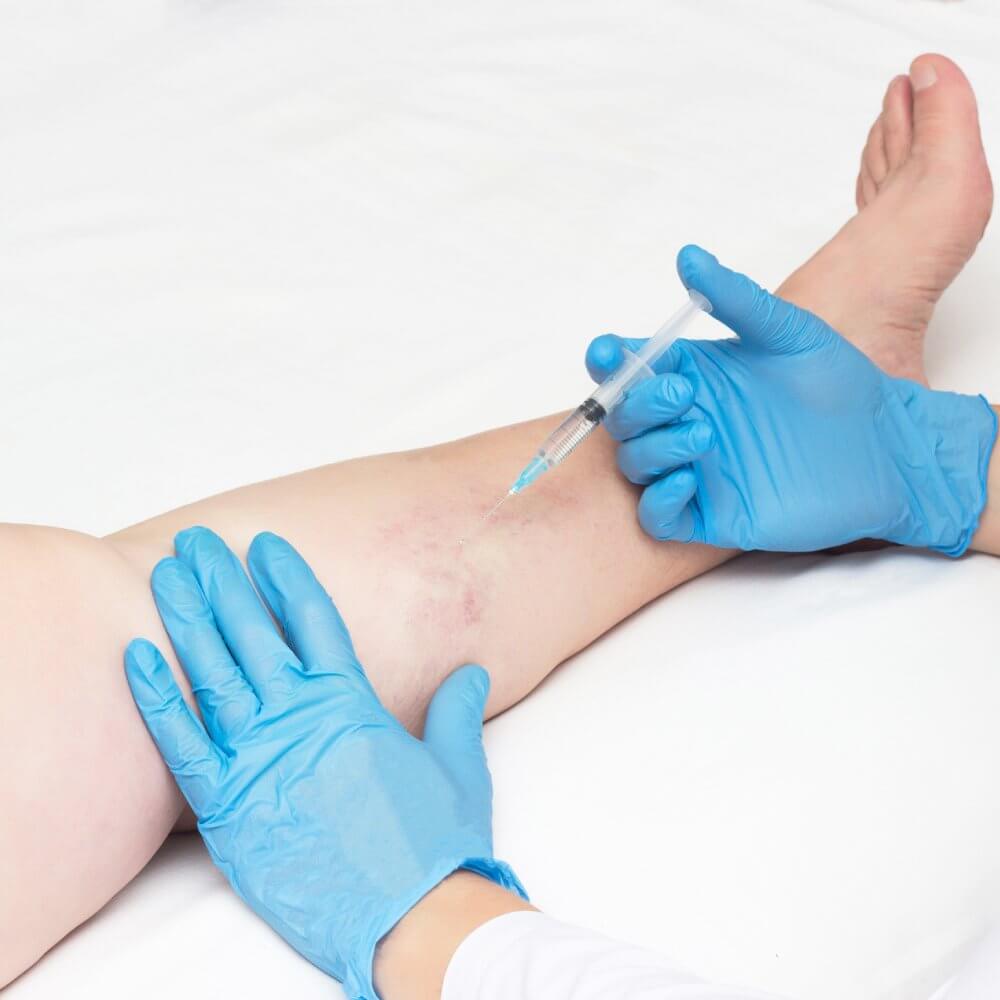
Typically used for smaller varicose veins and spider veins, this treatment involves injecting a solution into the affected veins, causing them to collapse and eventually fade away.
Learn More

Varithena is a type of foam sclerotherapy that can treat a wider range of vein sizes and types compared to traditional sclerotherapy.
Learn More
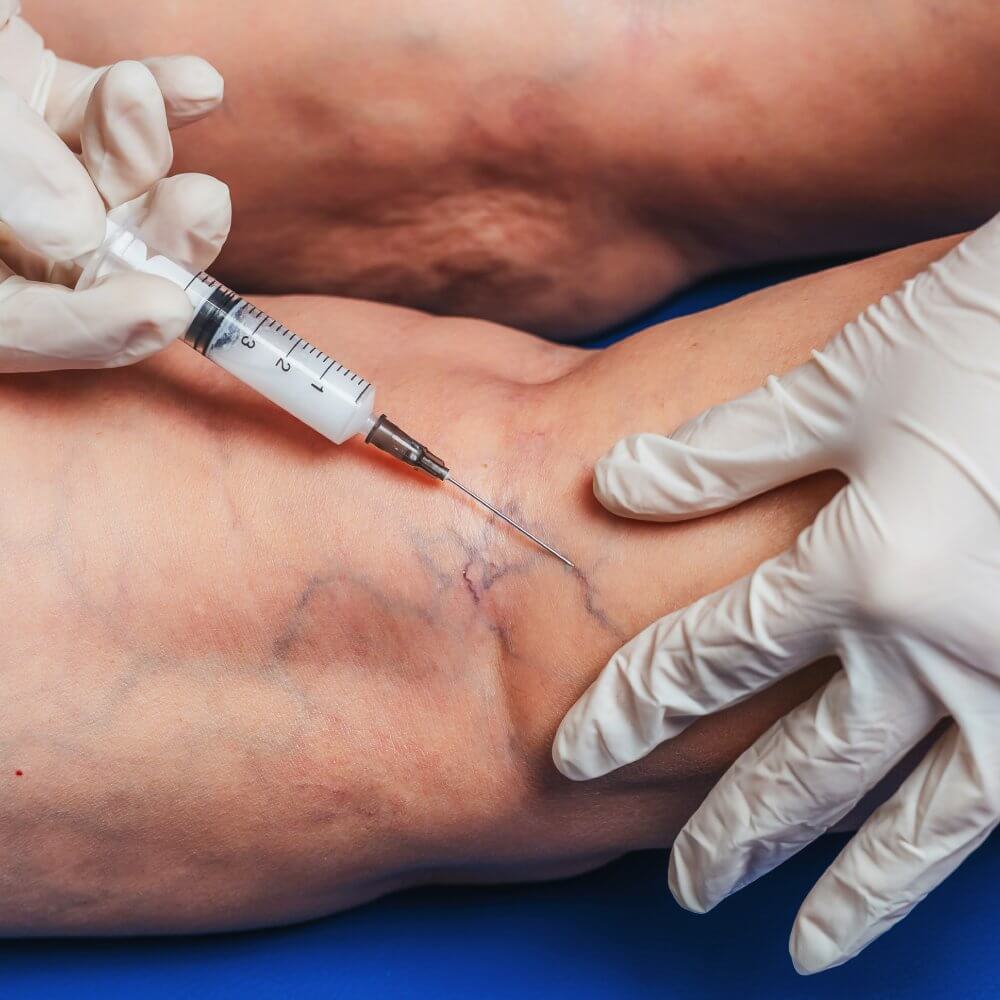
This minimally invasive procedure involves the removal of small varicose veins through tiny incisions. It's particularly effective for surface veins.
Learn More
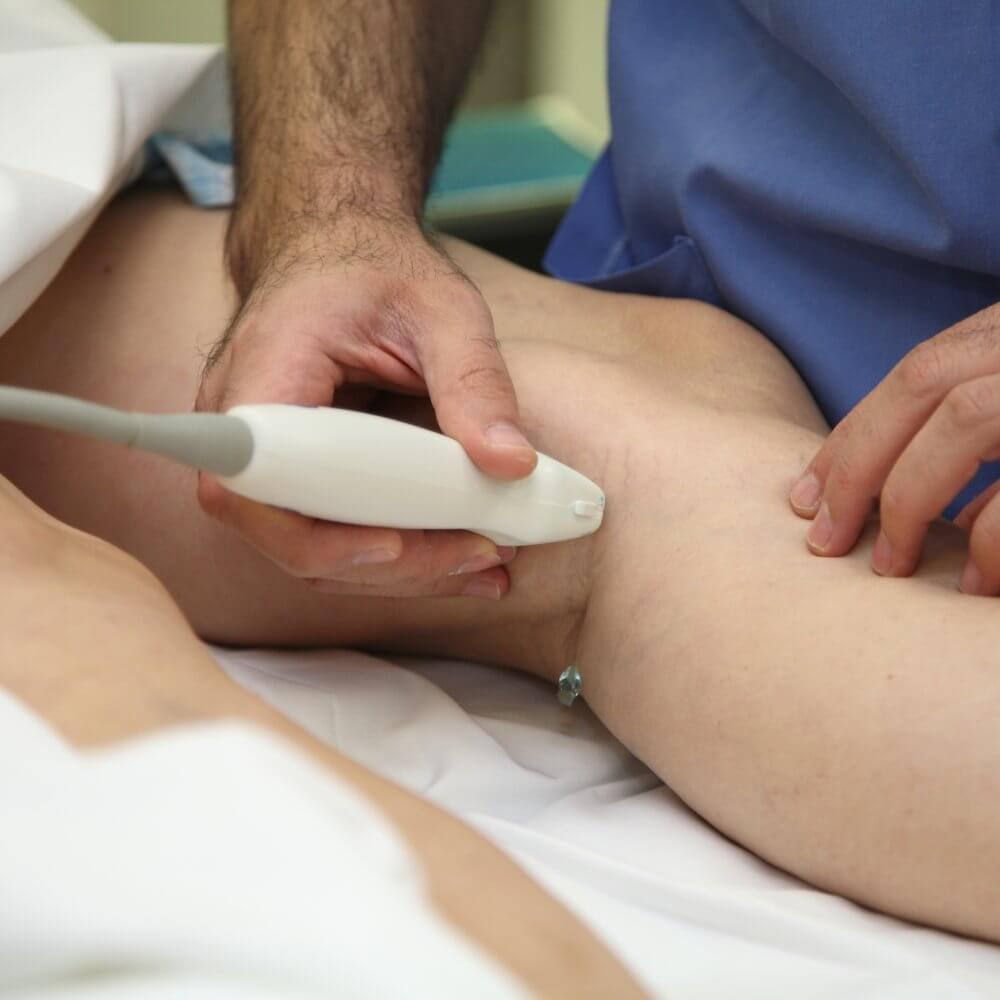
A minimally invasive procedure that uses heat from radiofrequency energy to close off problematic veins, redirecting blood flow to healthier veins.
Learn More
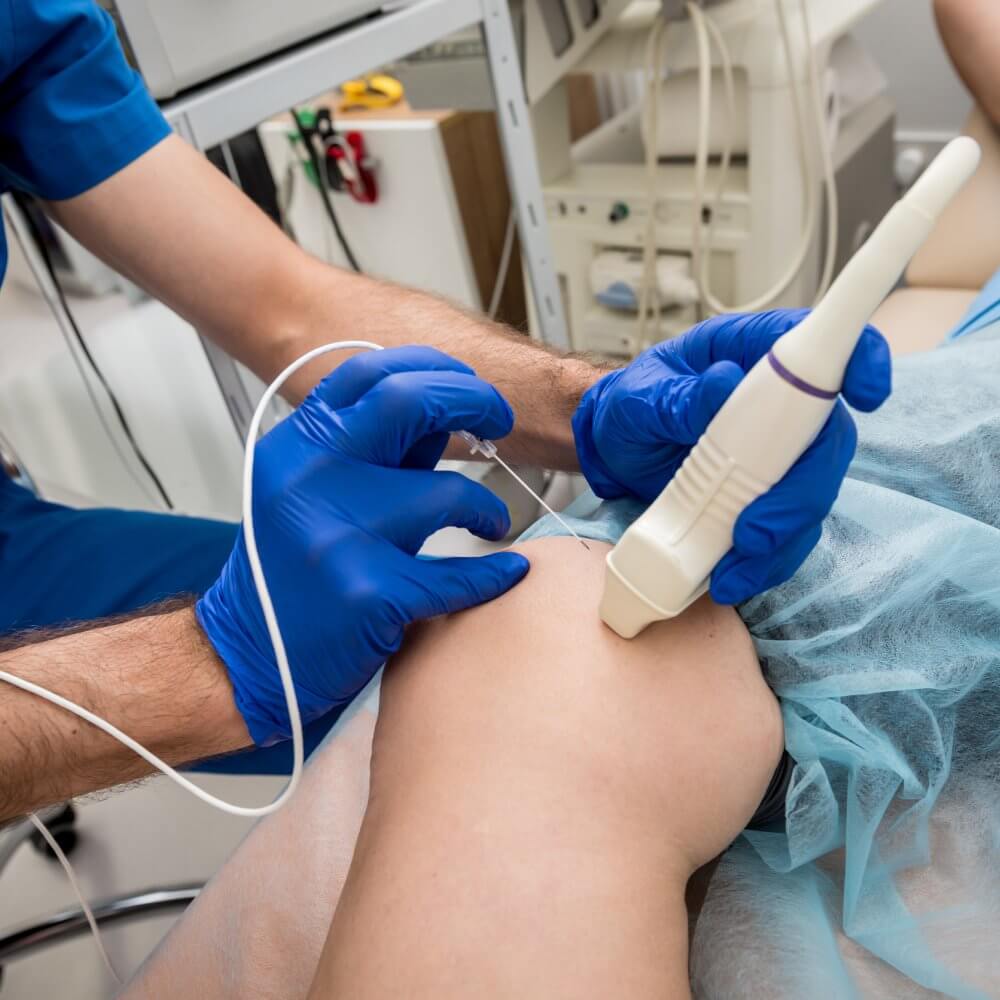
This procedure uses laser energy to close off varicose veins, redirecting blood flow to healthier veins.
Learn More
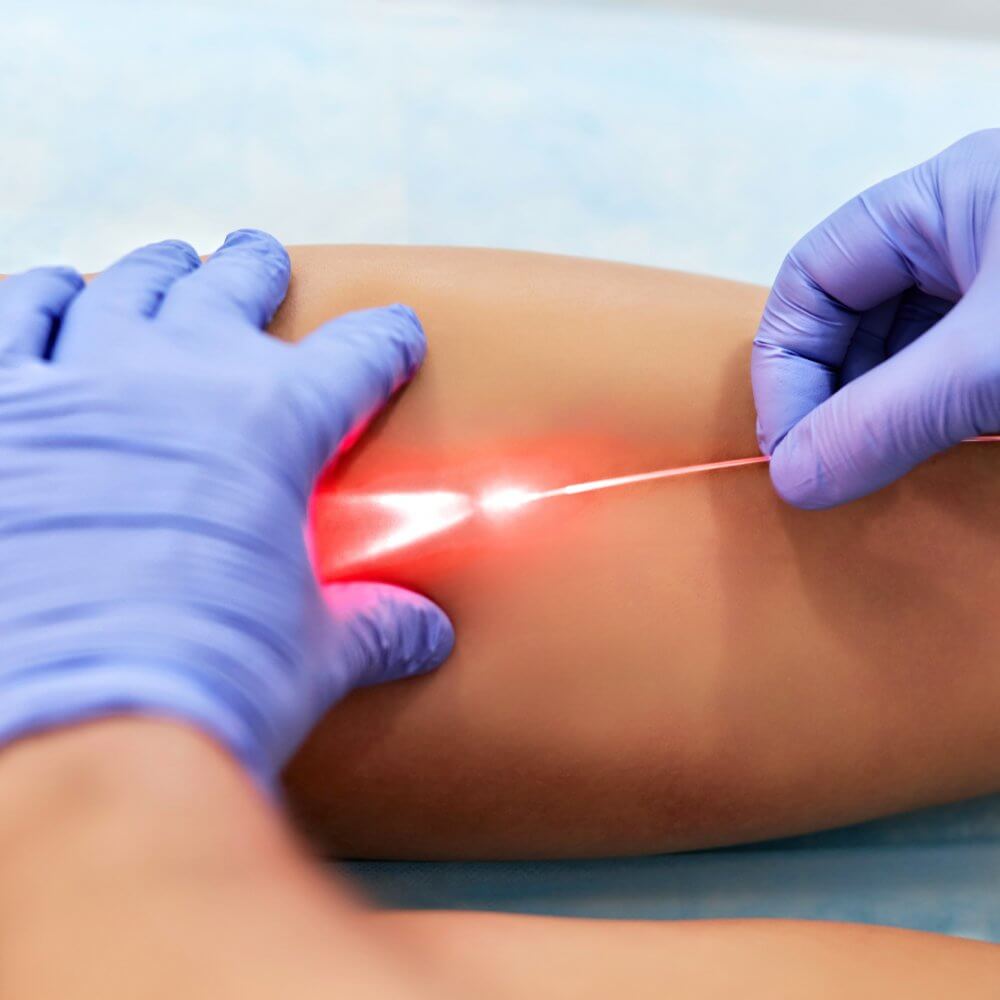
A medical adhesive is used to close the affected veins, sealing them and improving blood flow.
Learn More
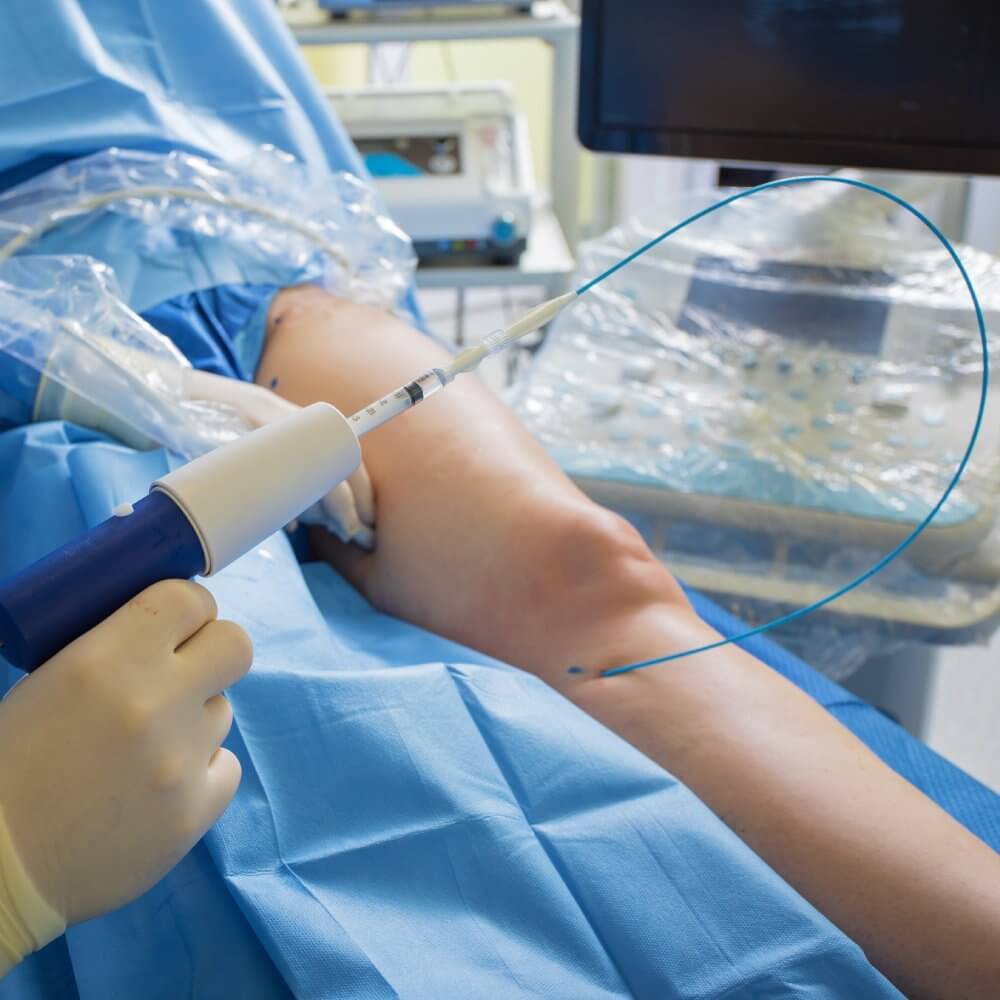
Similar to ambulatory phlebectomy, but even smaller incisions are made to remove superficial varicose veins.
Learn More
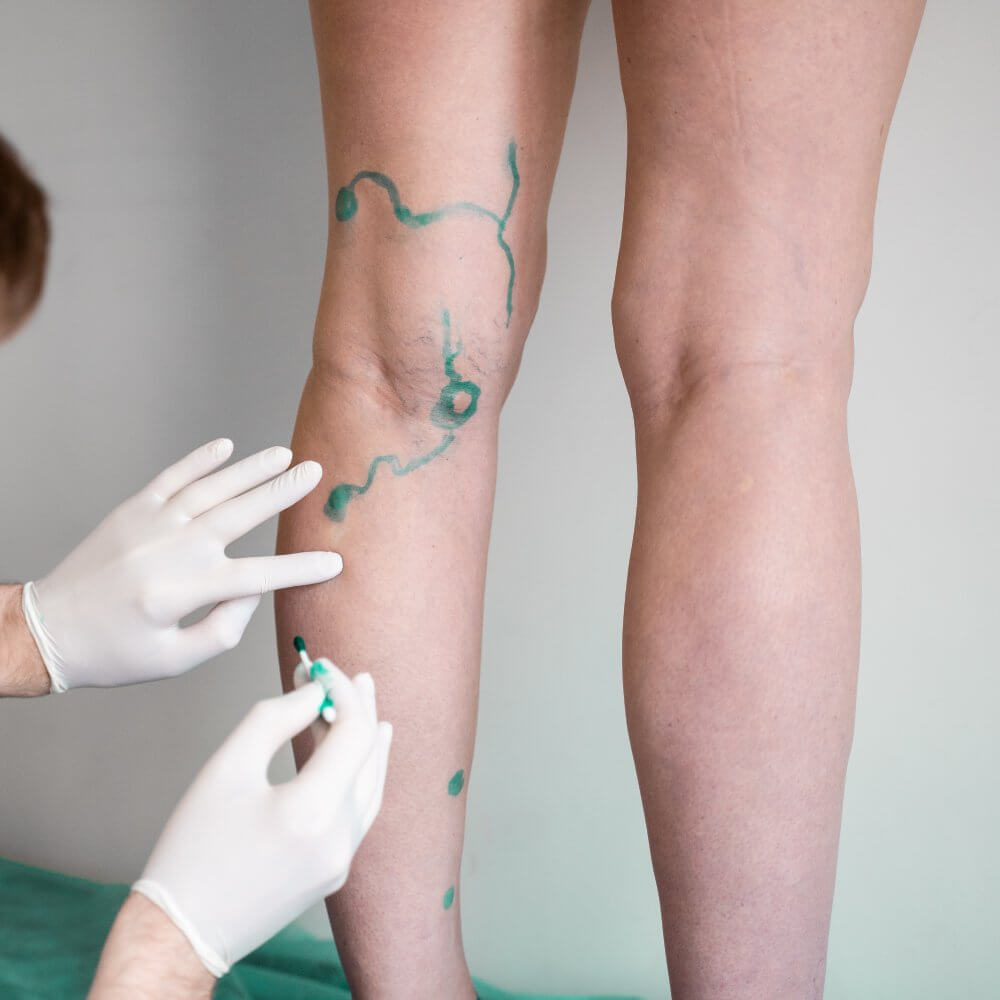
This procedure involves physically removing blood clots from veins. It's more commonly used for deep vein thrombosis.
Learn More
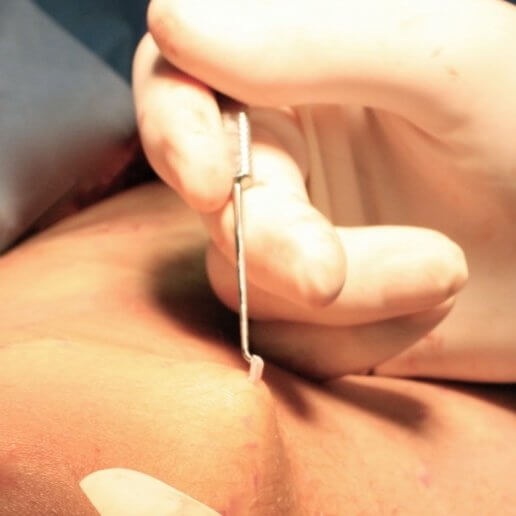
In cases where the larger iliac veins are affected, stents can be placed to keep the veins open and improve blood flow.
Learn More
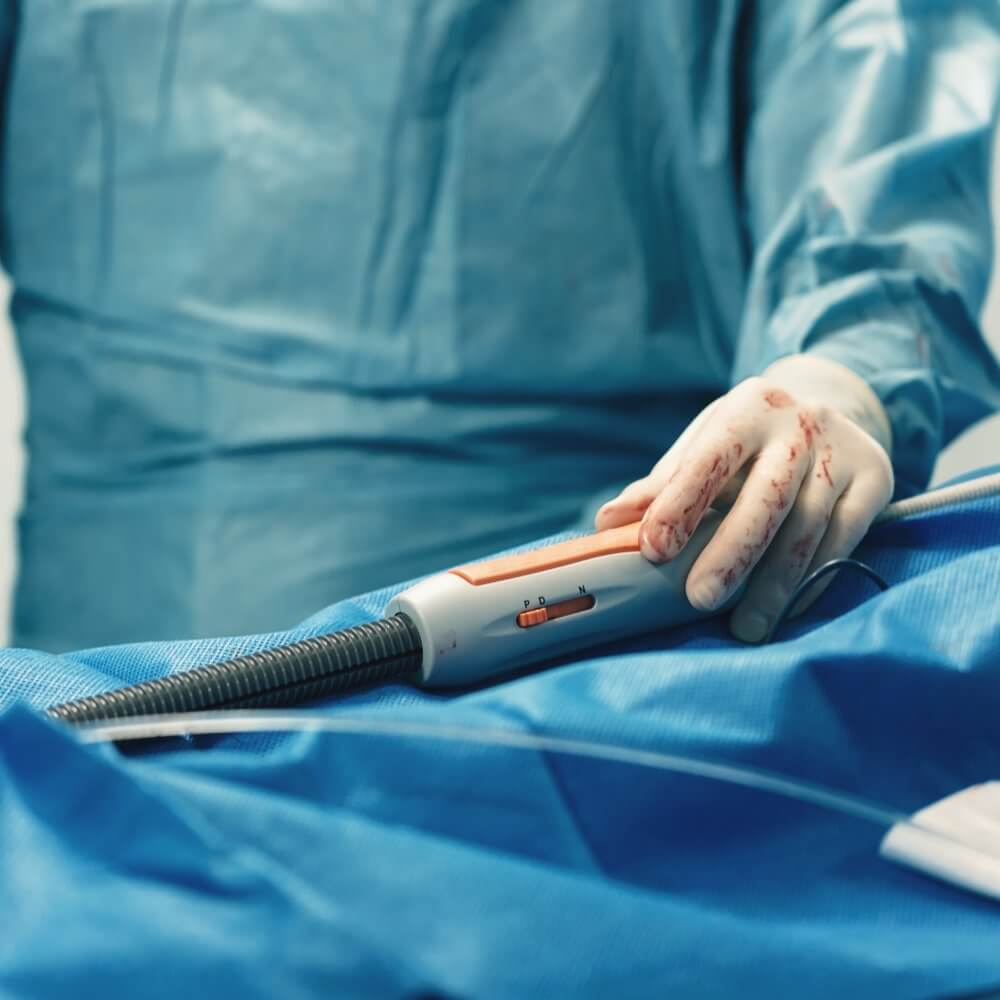
A procedure to widen narrowed veins using a balloon-like device to improve blood flow.
Learn More
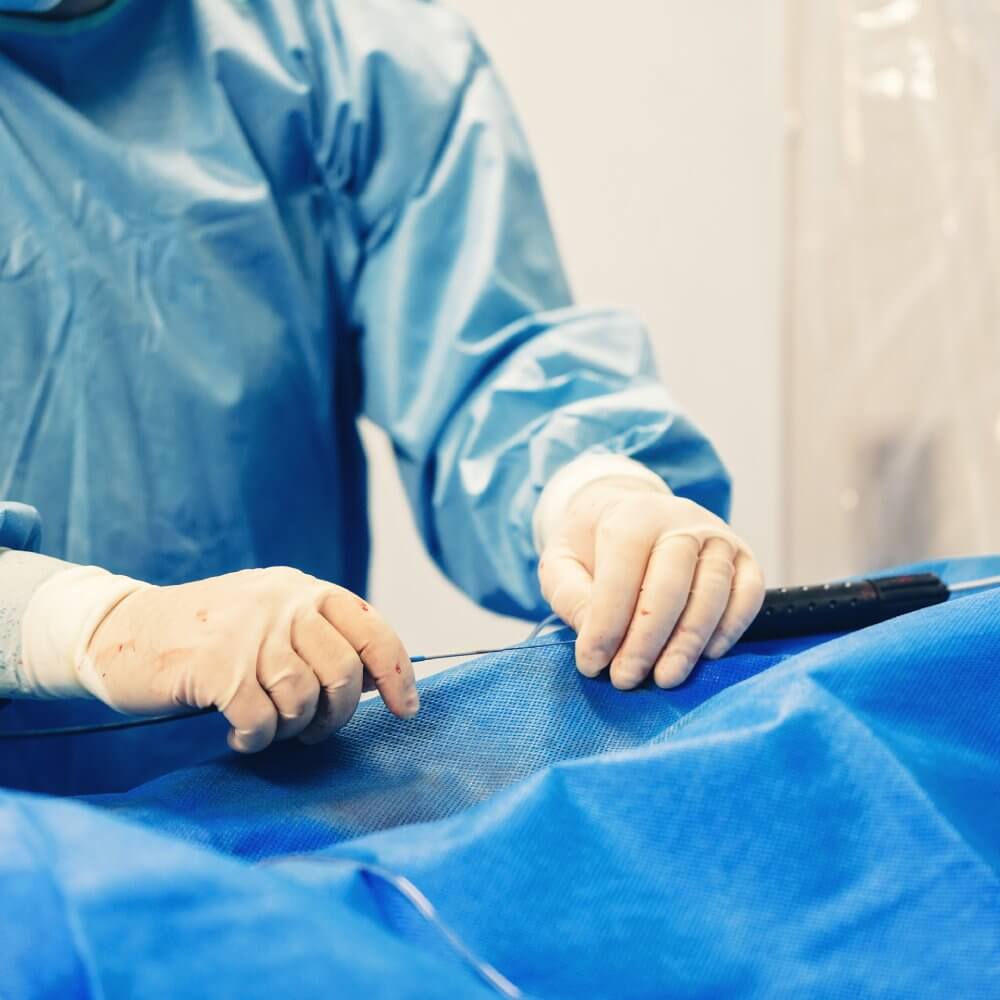
Used to remove plaque from veins or arteries, improving blood flow.
Learn More
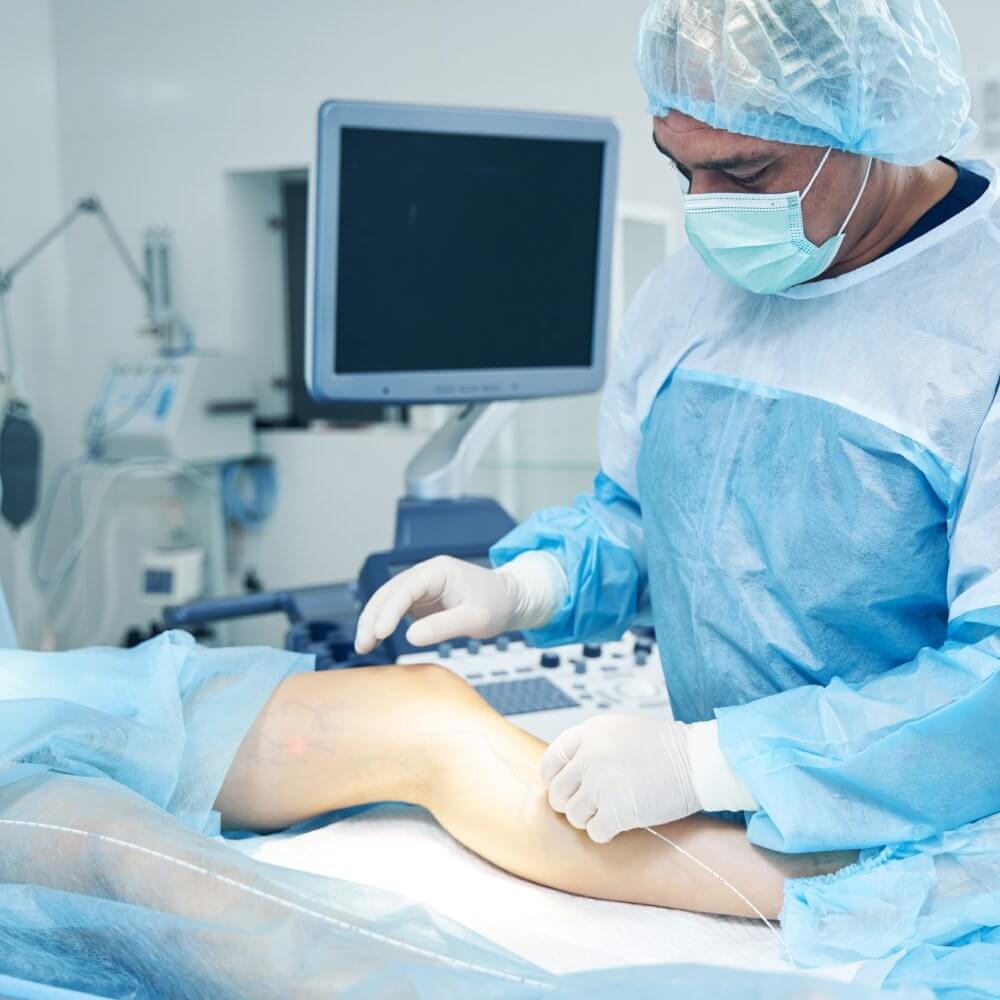
Stents can be placed in affected veins to keep them open, improving blood flow and alleviating symptoms.
Learn More
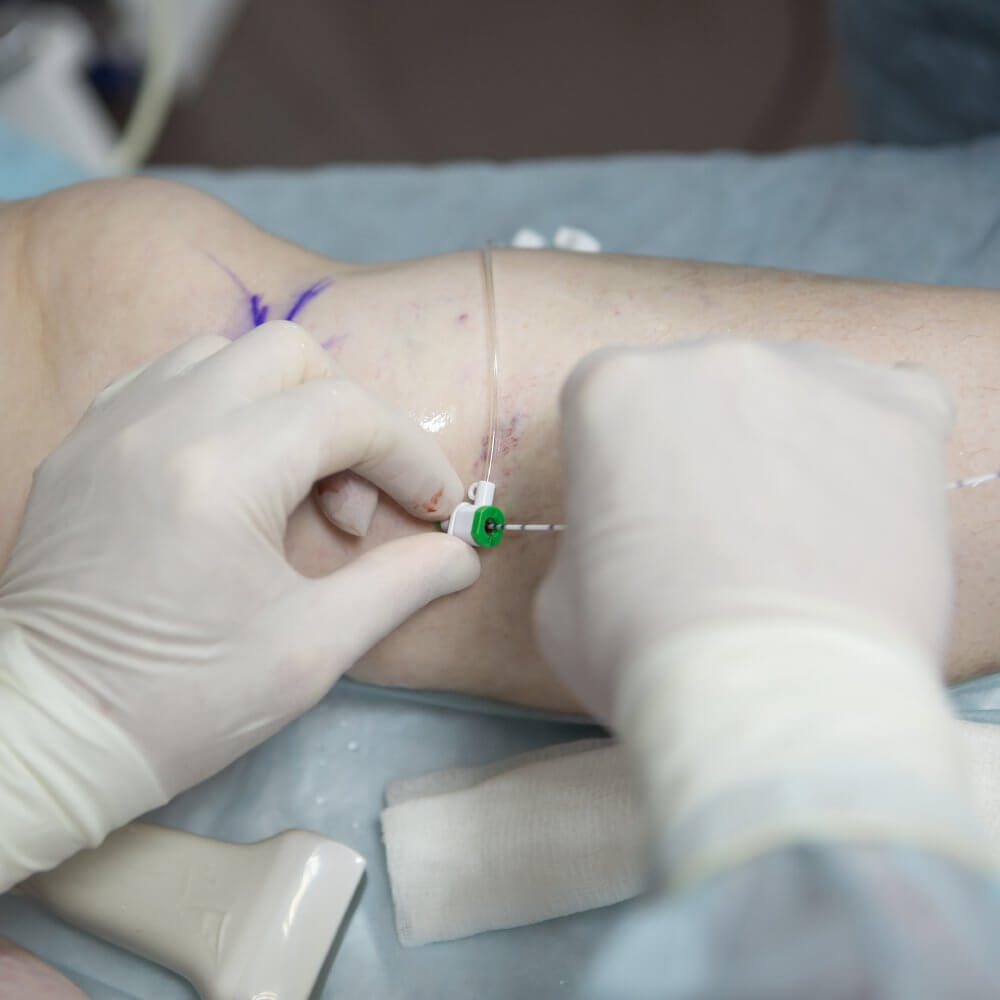
FAQs
While there is no cure for venous insufficiency, proper management of the condition can alleviate symptoms and prevent complications.
If left untreated, it can lead to painful ulcers and other complications, such as cellulitis, deep vein thrombosis, and varicose vein bleeding, among others. Early intervention is key.
You can reduce your risk of venous insufficiency by maintaining a healthy weight, staying active, and avoiding prolonged sitting or standing.
